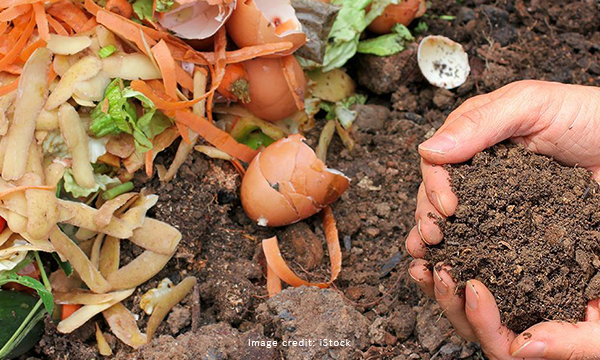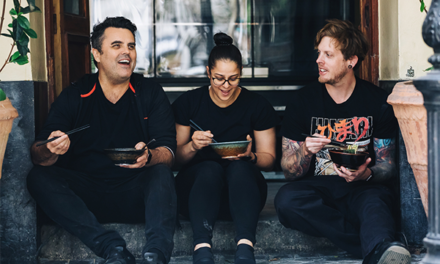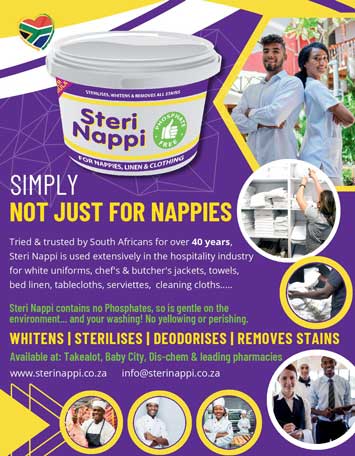IMAGINE NO ODOURS, no flies, no cockroaches or rats; no messy, smelly bins… Just clean, green, simple, fresh and efficient waste management, that sends food waste back to the land as compost, instead of to landfill to rot.
BiobiN is recognised globally as one of the best capture and containment systems for food waste management, and is now available in South Africa for the first time.
With a booming hospitality sector, a thriving wine region and an abundance of popular restaurant hotspots, it comes as no surprise that South Africa generates 10 million tons of food waste per year, with the majority of this waste stream ending up in landfill.
“Previously there was no easy solution for restaurants, hotels and other food outlets to manage food waste,” says Brian Küsel from BiobiN. “The BiobiN system is custom-designed for on-site food waste management – with impeccable “green”credentials.
Establishments can also use the high-quality compost produced to feed their own gardens, closing the food waste circle.
Food waste poses a big environmental issue in landfill sites. When food waste breaks down, the two by-products that are produced are methane and leachate. Methane is a greenhouse gas, while leachate is a contaminant that has the potential to pollute the fresh ground water that we drink.
Also, South Africa has introduced stringent waste management regulations that place far stricter prohibitions on the disposal of food waste in an attempt to reduce the environmental impacts at landfill sites.
“These new waste regulations are starting to put hotels, conference centres ,restaurants and fast food outlets owners under pressure, and the cost of ‘dumping’ food waste in black bins will rapidly increase,” says Küsel. “Composting with a BiobiN will quickly become the more cost-effective and long terms sustainable solution to managing restaurant food waste and at the same time enriching our soils.
“It is really important to keep food waste separated and by doing so we will also prevent other recyclable waste streams becoming contaminated through contact with food waste,” says Küsel.
To find out more about this innovative organic waste solution, visit the BiobiN website at www.biobin.co.za.






 Cauliflower Skewers with Pesto Drizzle
Cauliflower Skewers with Pesto Drizzle Lamb & Green Bean Bredie
Lamb & Green Bean Bredie Kerry Kilpin’s Pickled Fish Tacos
Kerry Kilpin’s Pickled Fish Tacos The Table Bay’s Ombré Chia Breakfast Sundae
The Table Bay’s Ombré Chia Breakfast Sundae Best gin Christmas cocktails
Best gin Christmas cocktails All Recipes
All Recipes











